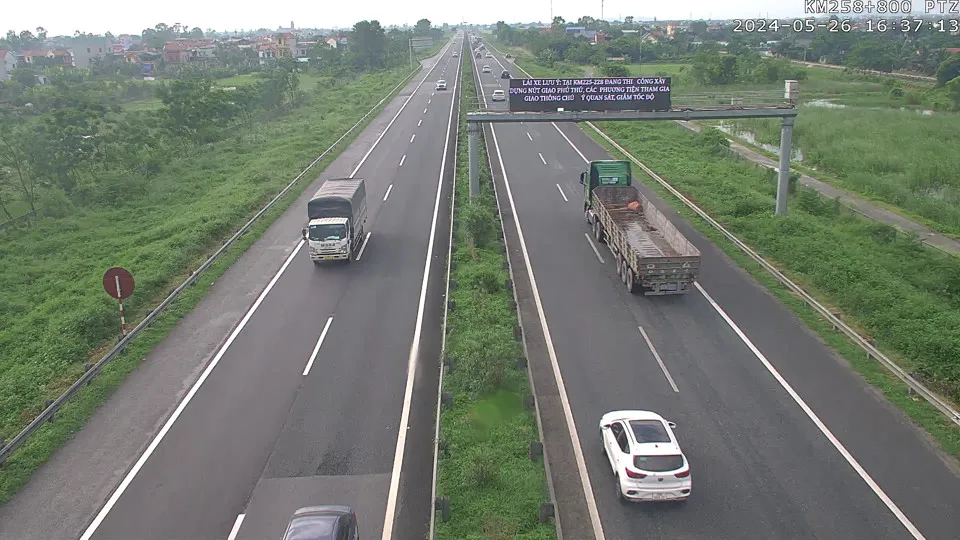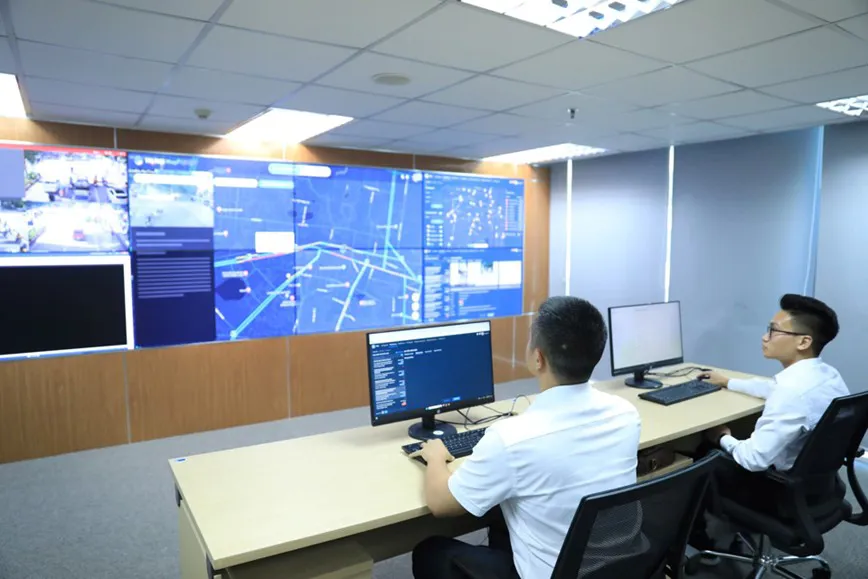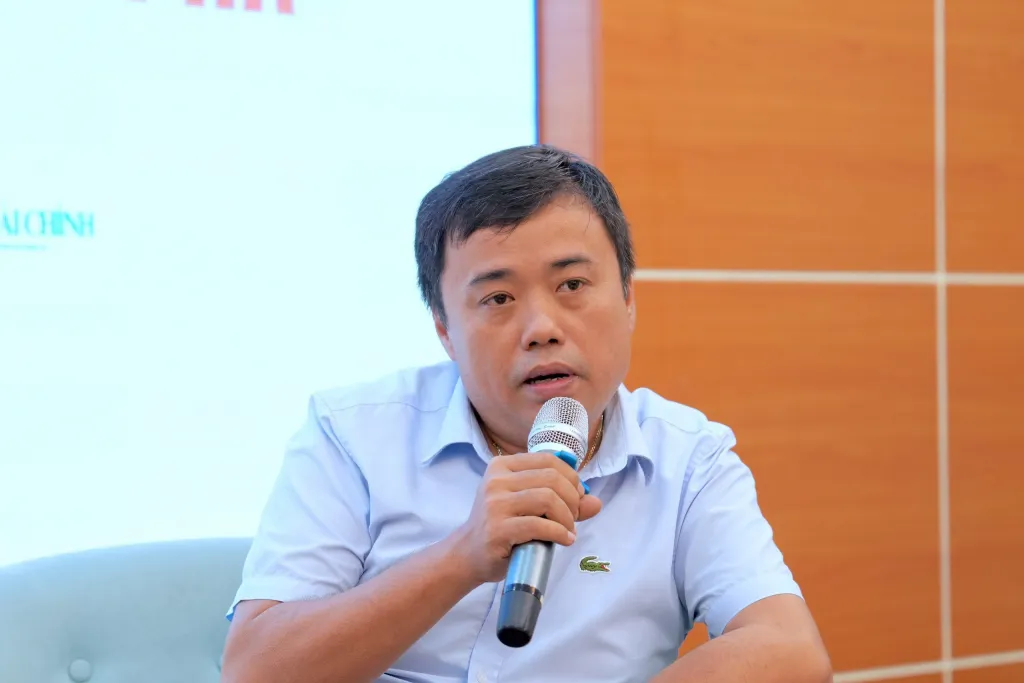Private funding for intelligent transport system in Hanoi
Faced with rapid technological change, Hanoi needs to seek key regional and global partners to learn and transfer the latest technologies.
Hanoi seeks substantial funding to develop its transport infrastructure, mostly the Intelligent Transport System (ITS), which is crucial and fundamental for a smart city.
| The ITS displays a warning to drivers on the Cau Giay - Ninh Binh highway. Photo: Huyen Sam/The Hanoi Times |
To lay the groundwork for the city's smart infrastructure and ITS by 2030, the Hanoi Department of Transport has conducted in-depth studies and made specific proposals.
However, securing funding for this system is a major challenge. The Hanoi People's Council and the city government have agreed to invest with funds from the state budget and private funds. The recently amended Capital Law will facilitate the emergence of various investment models and expand opportunities for attracting private resources.
The city will develop a unique mechanism for strategic investors, highlighting the possibility of capital recovery to successfully engage their resources.
It is expected to consider leasing infrastructure and technology from investors, a method that has proven effective in Ho Chi Minh City and other global urban centers in implementing ITS.
The initial investment costs for ITS infrastructure are significant and current systems are at risk of becoming obsolete due to the speed at which technology is developing. A comprehensive service leasing model is one of the best solutions for both ITS and smart city development, making it easier to incorporate modern technology and saving money.
| Hanoi ITS Center. Photo: Pham Hung/The Hanoi Times |
Additionally, the city plans to implement IT service leasing for ITS in the first phase of the Intelligent Transport System. The service provider will be paid an annual fee to manage, operate and maintain the entire system before transferring the technology back to the city.
In a rapidly changing technological landscape, service leasing will ease some of the city's financial burdens, especially as Hanoi embarks on major initiatives to reduce traffic congestion and pollution. These initiatives include investment in urban rail networks, infrastructure development and the greening of the bus fleet.
All maintenance, operation and management responsibilities will fall to the selected service provider. However, careful attention must be paid to the transfer and adoption of ITS technology from the outset. It is essential to establish strict accountability with investors to ensure effective technology transfer and to select and train personnel capable of effectively managing and operating the ITS.
"A key requirement for advancing ITS is the need to identify strategic investors for a comprehensive approach. Given the rapid pace of technological change, Hanoi needs to engage key regional and global investors. These partners will not only provide the latest technologies, but also facilitate technology transfer to the city". |
Hanoi Department of Transport urges speedy implementation of intelligent transport system The Hanoi Department of Transport has stressed the urgent need to speed up the implementation of a smart transport system to significantly reduce traffic congestion and minimize environmental pollution caused by vehicle emissions. The department has submitted a proposal for an intelligent transport project to the Hanoi People's Committee for approval. This plan outlines key components such as effective management and utilization of transport infrastructure, application of advanced technologies to enhance management capabilities and promotion of road safety and cultural awareness. The proposal includes a three-phase implementation schedule. Accordingly, Phase 1 (2024-2026) will involve the installation and operation of the Traffic Operations Center; Phase 2 (2027-2029) will expand the center; and Phase 3 (2030) will prioritize sustainable development. With a large area and a dense population of over 8.5 million people and approximately eight million vehicles, Hanoi faces significant transportation challenges. Currently, only about 12% of the city's land area is dedicated to transportation, and public transport usage remains low. These factors contribute to severe traffic congestion and pollution. The city launched its ITS Center in July as part of the digital transformation plan adopted by the Hanoi Party Committee, which aims to make the capital a smart and modern city connected to a global network of smart metropolises by 2030. The ITS will monitor the traffic system, provide real-time information, manage traffic orders and safety violations, and oversee public transport, incidents, infrastructure, parking, and electronic ticket payments. |












